Financial System Adaptability and Resilience
This research group investigates critical aspects of financial system adaptability and resilience. First, it analyses the impact of natural disasters on financial systems. Second, the group aims to investigate the effects of political preferences for the green transition. Third, the group's research analyses the role of culture in economies.
Research Cluster
Financial Resilience and RegulationYour contact

Mitglied - Department Financial Markets
EXTERNAL FUNDING
07.2016 ‐ 12.2018
Relationship Lenders and Unorthodox Monetary Policy: Investment, Employment, and Resource Reallocation Effects
Leibniz Association
We combine a number of unique and proprietary data sources to measure the impact of relationship lenders and unconventional monetary policy during and after the European sovereign debt crisis on the real economy. Establishing systematic links between different research data centers (Forschungsdatenzentren, FDZ) and central banks with detailed micro-level information on both financial and real activity is the stand-alone proposition of our proposal. The main objective is to permit the identification of causal effects, or their absence, regarding which policies were conducive to mitigate financial shocks and stimulate real economic activities, such as employment, investment, or the closure of plants.
01.2015 ‐ 12.2019
Interactions between Bank-specific Risk and Macroeconomic Performance
German Research Foundation (DFG)
Refereed Publications
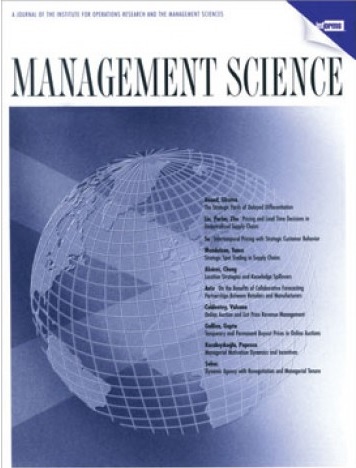
On the Nonexclusivity of Loan Contracts: An Empirical Investigation
in: Management Science, No. 12, 2016
Abstract
We study how a bank's willingness to lend to a previously exclusive firm changes once the firm obtains a loan from another bank ("outside loan") and breaks an exclusive relationship. Using a difference-in-difference analysis and a setting where outside loans are observable, we document that an outside loan triggers a decrease in the initial bank's willingness to lend to the firm, i.e., outside loans are strategic substitutes. Consistent with concerns about coordination problems and higher indebtedness, we find that this reaction is more pronounced the larger the outside loan and it is muted if the initial bank's existing and future loans retain seniority and are protected with valuable collateral. Our results give a benevolent role to transparency enabling banks to mitigate adverse effects from outside loans. The resulting substitute behavior may also act as a stabilizing force in credit markets limiting positive comovements between lenders, decreasing the possibility of credit freezes and financial crises.
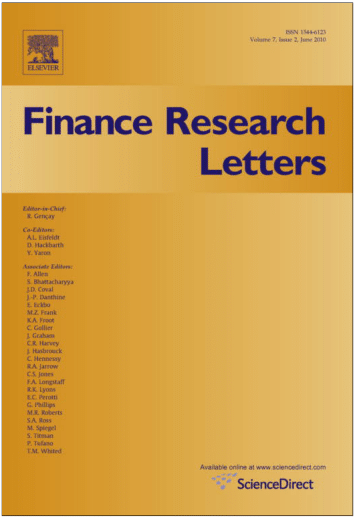
Foreign Funding Shocks and the Lending Channel: Do Foreign Banks Adjust Differently?
in: Finance Research Letters, November 2016
Abstract
We document for a set of Latin American emerging countries that the different nature of foreign funding accessed by foreign and local banks affected their lending performance after September 2008. We show that lending growth was weaker for shock-affected foreign banks compared to shock-affected local banks. This evidence represents valuable policy information for regulators concerned with the stability and well-functioning of banking sectors.
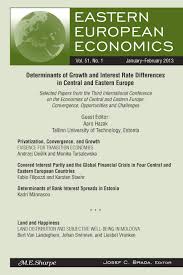
Decision-making Power in Foreign Subsidiaries and Its Effect on Financial Constraints: An Analysis for Selected European Transition Economies on the Basis of the IWH FDI Micro Database 2013
in: Eastern European Economics, No. 6, 2016
Abstract
This article analyzes whether the distribution of decision-making power between the headquarters and foreign subsidiaries of multinational enterprises (MNEs) affects the foreign affiliates’ financial constraints. The findings show that not much decision-making power has as yet been moved from headquarters to foreign subsidiaries in European post-transition economies. The high concentration of decision-making power within the MNE’s subsidiary points toward higher financial constraints. However, a nonlinear effect is found, which suggests that financial constraints within the subsidiary only increase with more decision-making power when the power granted to the subsidiary is at a low level. For subsidiaries that already have autonomy in decision-making, granting more power in this regard has no effect on financial constraints.
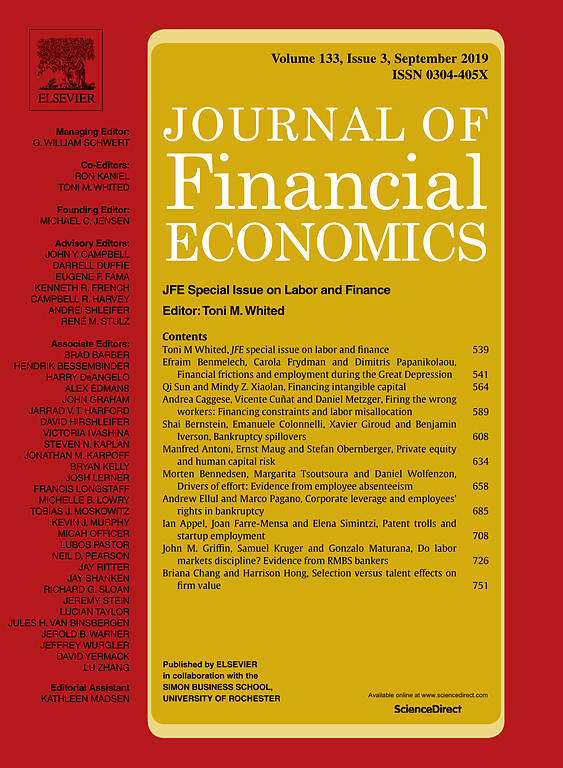
Relative Peer Quality and Firm Performance
in: Journal of Financial Economics, No. 1, 2016
Abstract
We examine the performance impact of the relative quality of a Chief Executive Officer (CEO)’s compensation peers (peers to determine a CEO's overall compensation) and bonus peers (peers to determine a CEO's relative-performance-based bonus). We use the fraction of peers with greater managerial ability scores (Demerjian, Lev, and McVay, 2012) than the reporting firm to measure this CEO's relative peer quality (RPQ). We find that firms with higher RPQ earn higher stock returns and experience higher profitability growth than firms with lower RPQ. Learning among peers and the increased incentive to work harder induced by the peer-based tournament contribute to RPQ's performance effect.
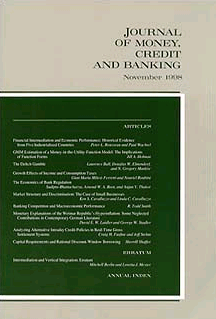
Bank Recapitalization, Regulatory Intervention, and Repayment
in: Journal of Money, Credit and Banking, No. 7, 2016
Abstract
We use prudential supervisory data for all German banks during 1994–2010 to test if regulatory interventions affect the likelihood that bailed-out banks repay capital support. Accounting for the selection bias inherent in nonrandom bank bailouts by insurance schemes and the endogenous administration of regulatory interventions, we show that regulators can increase the likelihood of repayment substantially. An increase in intervention frequencies by one standard deviation increases the annual probability of capital support repayment by 7%. Sturdy interventions, like restructuring orders, are effective, whereas weak measures reduce repayment probabilities. Intervention effects last up to 5 years.
Working Papers
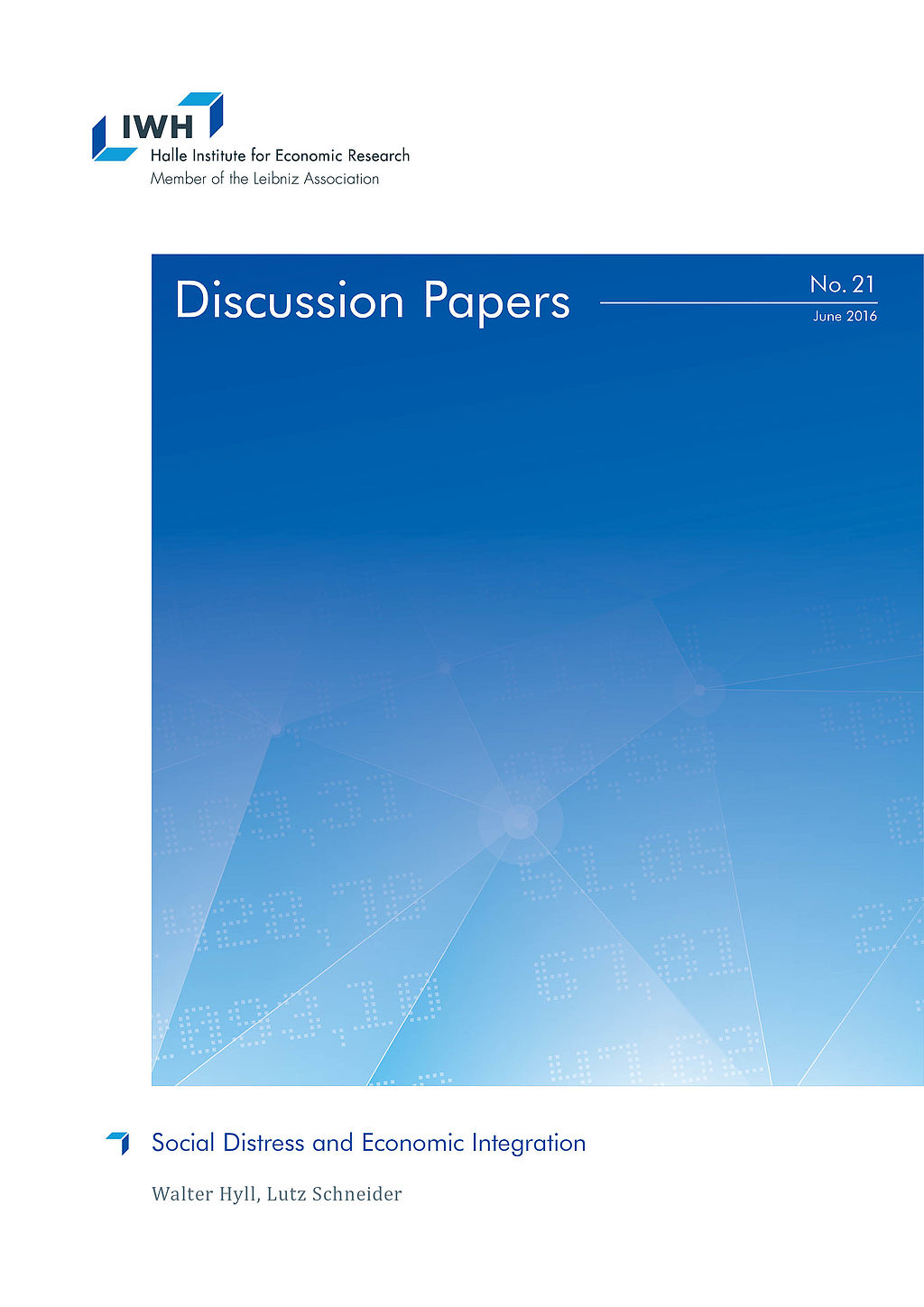
Corporate Governance Structures and Financial Constraints in Multinational Enterprises – An Analysis in Selected European Transition Economies on the Basis of the IWH FDI Micro Database 2013 –
in: IWH Discussion Papers, No. 3, 2015
Abstract
In our analysis, we consider the distribution of decision power over financing and investment between MNEs’ headquarters and foreign subsidiaries and its influence on the foreign affiliates’ financial restrictions. Our research results show that headquarters of multinational enterprises have not (yet) moved much decision power to their foreign subsidiaries at all. We use data from the IWH FDI Micro Database which contains information on corporate governance structures and financial restrictions of 609 enterprises with a foreign investor in Hungary, Poland, the Czech Republic, Slovakia, Romania and East Germany. We match data from Bureau van Dijk’s AMADEUS database on financial characteristics. We find that a high concentration of decision power within the MNE’s headquarter implicates high financial restrictions within the subsidiary. Square term results show, however, that the effect of financial constraints within the subsidiary decreases and finally turns insignificant when decision power moves from headquarter to subsidiary. Thus, economic policy should encourage foreign investors in the case of foreign acquisition of local enterprises to leave decision power within the enterprise and in the case of Greenfield investment to provide the newly established subsidiaries with as much power over corporate governance structures as possible.


















